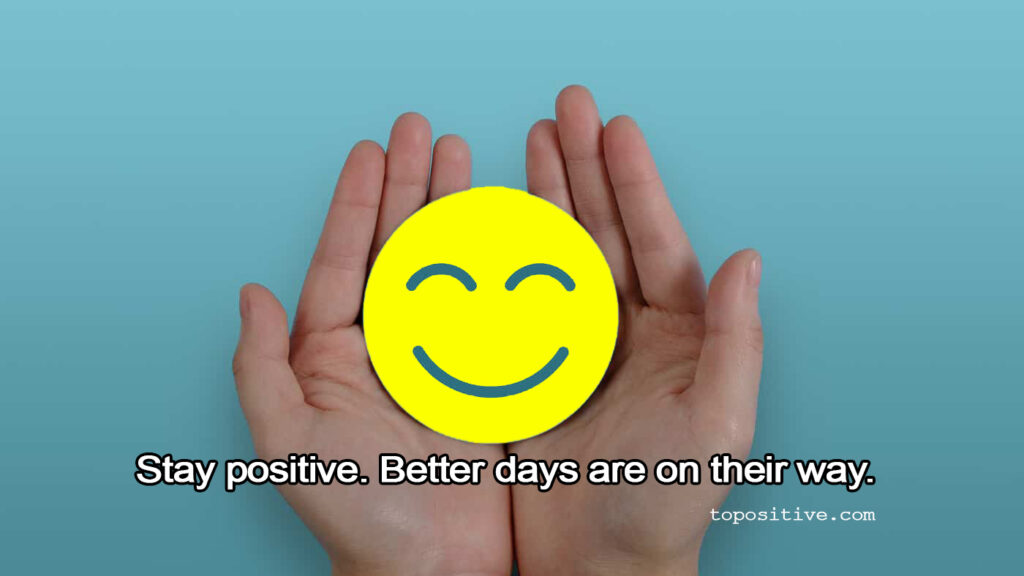A rule of life is a set of principles or guidelines that an individual follows in order to live a more intentional, meaningful, and purposeful life. It is a way of organizing one’s time, priorities, and values in order to create a sense of balance and fulfillment in daily life.
By establishing a set of rules of life, everyone can better align their daily actions and decisions with their values and priorities, and ultimately create a life that is more meaningful and satisfying.
Rule #1 – “Stand up straight with your shoulders back” – Jordan Peterson
Maintain an upright position with your back straight and your shoulders pulled back, rather than slouching forward.
When you stand up straight with your shoulders back, you align your spine in a natural position, which helps to reduce strain on your muscles and joints. Good posture can also improve your breathing and circulation, and it can make you look more confident and approachable.
In addition to physical benefits, there are also psychological benefits to standing up straight with your shoulders back. It can give you a sense of confidence and control, which can have a positive impact on your mood and mental well-being.
Standing up straight with your shoulders back is a simple but effective way to improve your posture and promote good physical and mental health.
Rule #2 – “Treat yourself like you’re someone that you care about.” – Jordan Peterson
Self-care and self-compassion are very important for a peaceful life. You should treat yourself with the same kindness, respect, and consideration that you would give to someone you care about, such as a close friend or family member.
Often, people tend to be harder on themselves than they would be on others. They might judge themselves harshly, put themselves down, or neglect their own needs and well-being. However, treating yourself like you’re someone that you care about means that you prioritize your own health and happiness, and treat yourself with the same empathy and support that you would offer to someone else.
Examples of treating yourself like you’re someone that you care about might include:
- Practicing self-care activities, such as taking a relaxing bath or getting a massage
- Setting boundaries and saying no to things that don’t serve your well-being
- Speaking kindly to yourself and practicing positive self-talk
- Prioritizing your physical and mental health, such as by getting enough sleep, eating well, and exercising regularly
- Seeking support and help when you need it, such as reaching out to a therapist or trusted friend.
- By treating yourself like you’re someone that you care about, you can cultivate a stronger sense of self-worth, self-esteem, and overall well-being.
Rule #3 – “Make friends with people that want the best for you.” – Jordan Peterson
It’s important to surround yourself with positive and supportive people in your life. It means that you should seek out relationships with individuals who genuinely care about you and your well-being, and who encourage you to pursue your goals and dreams.
Having friends who want the best for you can have a significant impact on your mental health and overall happiness. When you have supportive friends, you feel more accepted, valued, and understood, which can boost your confidence and self-esteem. Additionally, positive friendships can provide a source of motivation and inspiration, as well as a sense of belonging and community.
Having friends who are negative or unsupportive can be harmful to your mental health and well-being. Negative friends may bring you down, criticize you, or discourage you from pursuing your goals. These types of relationships can create stress, anxiety, and feelings of inadequacy.
Therefore, it’s essential to prioritize relationships with people who want the best for you. These friends will support you through challenges and help you celebrate your successes. They will listen to you, offer advice when needed, and provide a positive influence on your life.
Making friends with people that want the best for you is a crucial aspect of building a healthy and fulfilling life. By surrounding yourself with positive and supportive individuals, you can create a strong support system that will help you navigate life’s ups and downs with confidence.
Rule #4 – “Compare yourself to who you were yesterday, not to who someone else is today.” – Jordan Peterson
When you compare yourself to someone else, you may be setting unrealistic expectations or standards for yourself that are not relevant or attainable.
On the other hand, when you compare yourself to who you were yesterday, you are looking at your own progress and growth and setting goals that are achievable and relevant to your own life. This can help you build self-confidence and motivation, and encourage you to continue improving yourself and your circumstances.
You should focus on your own journey and progress, rather than comparing yourself to others who may have different circumstances, goals, or paths in life. By doing so, you can cultivate a positive mindset and make progress toward your own personal goals and aspirations.
Rule #5 – “Always seek to learn something new every day.”
This rule emphasizes the importance of continuous learning and personal growth and encourages individuals to be open to new experiences, ideas, and knowledge. By seeking out new learning opportunities each day, we can expand our horizons, challenge our assumptions, and broaden our perspectives. This can help us develop new skills, make better decisions, and become more well-rounded individuals overall. Additionally, learning can be a source of enjoyment and fulfillment, as we discover new passions and interests and deepen our understanding of the world around us.
Approach each day with curiosity and a willingness to learn. It can be something as simple as reading a new book, trying a new hobby, or seeking out a new perspective from someone you meet. The goal is to keep an open mind and remain receptive to new ideas and experiences, which can help us to broaden our understanding of the world around us and develop our skills and abilities.
By making a habit of learning something new each day, we can continually challenge ourselves and push beyond our comfort zones, which can lead to personal growth and development. Additionally, this rule of life can help us to stay engaged with the world around us and avoid becoming stagnant or complacent.
Rule #6 – “Set your house in perfect order before you criticize the world” – Jordan Peterson
This quote, also from Jordan Peterson, suggests that one should focus on improving their own life before criticizing the world around them. It is a call to action for personal responsibility and self-improvement, rather than blaming external circumstances for one’s problems.
In essence, the quote suggests that it is important to address the issues in your own life and “set your house in perfect order” before criticizing or attempting to fix the problems in the world around you. This means taking personal responsibility for your actions, attitudes, and circumstances, and working to improve them before casting judgment or criticism on others or the world as a whole.
The idea behind this quote is that by improving oneself, one can become a better role model and example for others, and may be better equipped to help others in need. It also acknowledges that change must start from within and that it is easier to make a positive impact on the world when you have your own life in order.
By improving yourself, you can have a greater positive impact on the world around them.
Rule #7 – “Do what is meaningful, not what is expedient” – Jordan Peterson
Pursue things that have deep and lasting significance, rather than taking the easy or quick route. We should prioritize actions that have meaning and purpose, rather than simply seeking short-term gains or gratification.
Mindful and deliberate in our choices, and prioritize actions that align with our values and aspirations. By pursuing meaningful goals and actions, we can live a more fulfilling and purposeful life, rather than just going through the motions.
Doing what are expedient means taking the easiest or most convenient path, often at the expense of long-term goals or values. This can lead to a sense of emptiness or dissatisfaction, as one’s actions may not be aligned with their true desires or values.
Rule #8 – “Assume that the person you’re listening to might know something you don’t.” – Jordan Peterson
Approach conversations and interactions with an open mind, and acknowledge that others may have insights or knowledge that we may not possess. We should be humble and receptive to other people’s ideas and perspectives, even if we don’t necessarily agree with them or fully understand them.
Active listening and a willingness to learn from others, rather than just dismissing their ideas or perspectives out of hand. By assuming that the other person may know something we don’t, we can approach conversations and interactions with curiosity and an openness to new ideas and perspectives.
In today’s complex and interconnected world, where people from different backgrounds and cultures may have unique insights and perspectives to offer. By being receptive and open to other people’s ideas and knowledge, we can expand our knowledge and understanding of the world around us.
Rule #9 – “Be grateful for what you have, but never stop striving for what you want.”
This rule encourages individuals to appreciate the blessings in their lives, while also maintaining a sense of ambition and drive to achieve their goals and dreams. It emphasizes the importance of gratitude and contentment, while also recognizing the value of setting goals and pursuing personal growth.
The first part of the rule, “Be grateful for what you have,” encourages us to focus on the positive aspects of our lives and appreciate the things that we may sometimes take for granted. This can include things like our health, our relationships, our accomplishments, and the everyday moments of joy and beauty that surround us.
The second part of the rule, “Never stop striving for what you want,” encourages us to maintain a sense of ambition and purpose, and to keep working towards our goals and dreams. This can involve setting new goals, pursuing new challenges, and continually pushing ourselves to become better versions of ourselves.
By combining gratitude and ambition, this rule of life encourages individuals to find a balance between appreciating what they have and striving for what they want. It reminds us that it is possible to be content with our lives while also continuing to pursue personal growth and fulfillment.
Rule #10 – “Treat others the way you want to be treated.”
This rule often referred to as the Golden Rule, is a universal principle found in many cultures and religions. It encourages individuals to treat others with kindness, respect, and empathy, and to consider how they would want to be treated in similar situations.
The Golden Rule emphasizes the importance of empathy and understanding in our interactions with others. By putting ourselves in the shoes of others and considering their perspective, we can better understand their needs and desires and respond to them in a way that is respectful and compassionate.
Following a set of rules of life can have a profound impact on your life. By adopting intentional practices and prioritizing personal growth, you can create a sense of fulfillment that may have previously been lacking. These rules of life can help you to develop healthy habits, cultivate meaningful relationships, and find a sense of balance and well-being.




